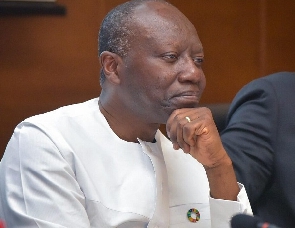The Economist Intelligence Unit (EIU) has projected that Ghana is poised to conclude negotiations with its external creditors in the upcoming weeks to pave the way for the restructuring of its foreign loans.
The EIU disclosed this in its latest report titled "Outlook for Global Sovereign Credit Risk".
According to the UK-based organisation, Ghana has made significant progress in its negotiations for the external debt restructuring.
Having requested a bilateral debt restructuring under the Common Framework for Debt Treatments supported by the G20 in December 2022, the Ghanaian government took a step further in June this year by sending a non-binding working debt-restructuring proposal to official bilateral creditors.
This act marks the initiation of a negotiation process that the EIU anticipates will conclude in the coming weeks.
The situation in Ghana was exacerbated by its default in December 2022, prompting the request for bilateral debt restructuring.
Six other nations (Mali, Sri Lanka, Russia, Ukraine, and Belarus) also faced loan defaults in 2022 due to strained public finances and surging interest rates.
Among these defaults, three (Russia, Ukraine, and Belarus) were a direct outcome of Russia's intervention in Ukraine, while the remaining three (Ghana, Sri Lanka, and Mali) were attributed to domestic economic imbalances coupled with a less favorable external environment or policy mismanagement.
The EIU indicated that this year could witness more countries experiencing debt defaults, with a prominent focus on Africa.
It emphasised that African economies had taken advantage of cost-effective international credit before the pandemic, accumulating substantial external debt burdens to support budgets and balance of payments.
Nonetheless, the surge in interest rates has led to a significant increase in debt-servicing costs for these nations.
Click to view details



Business News of Tuesday, 22 August 2023
Source: classfmonline.com

















